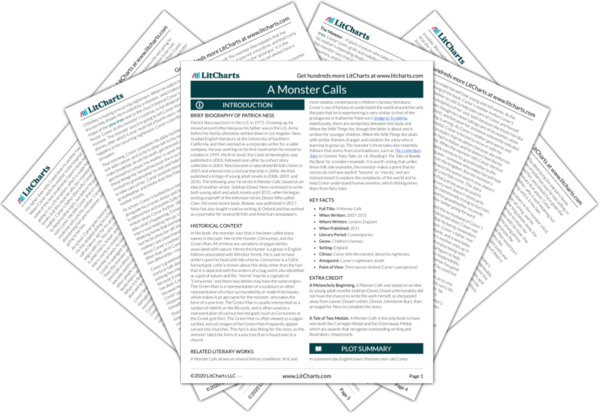Theme of Loneliness, Isolation, & Alienation in Literature with Examples
Humans are social creatures. Most of us enjoy communication and try to build relationships with others. It’s no wonder that the inability to be a part of society often leads to emotional turmoil.
Our specialists will write a custom essay specially for you!
World literature has numerous examples of characters who are disconnected from their loved ones or don’t fit into the social norms. Stories featuring themes of isolation and loneliness often describe a quest for happiness or explore the reasons behind these feelings.
In this article by Custom-Writing.org , we will:
- discuss isolation and loneliness in literary works;
- cite many excellent examples;
- provide relevant quotations.

🏝️ Isolation Theme in Literature
- 🏠 Theme of Loneliness
- 👽 Theme of Alienation
- Frankenstein
- The Metamorphosis
- Of Mice and Men
- ✍️ Essay Topics
🔍 References
Isolation is a state of being detached from other people, either physically or emotionally. It may have positive and negative connotations:
- In a positive sense, isolation can be a powerful source of creativity and independence.
- In negative terms , it can cause mental suffering and difficulties with interpersonal relationships.

Theme of Isolation and Loneliness: Difference
As you can see, isolation can be enjoyable in certain situations. That’s how it differs from loneliness : a negative state in which a person feels uncomfortable and emotionally down because of a lack of social interactions . In other words, isolated people are not necessarily lonely.
Isolation Theme Characteristics with Examples
Now, let’s examine isolation as a literary theme. It often appears in stories of different genres and has various shades of meaning. We’ll explain the different uses of this theme and provide examples from literature.
Just in 1 hour! We will write you a plagiarism-free paper in hardly more than 1 hour
Forced vs. Voluntary Isolation in Literature
Isolation can be voluntary or happen for external reasons beyond the person’s control. The main difference lies in the agent who imposes isolation on the person:
- If someone decides to be alone and enjoys this state of solitude, it’s voluntary isolation . The poetry of Emily Dickinson is a prominent example.
- Forced isolation often acts as punishment and leads to detrimental emotional consequences. This form of isolation doesn’t depend on the character’s will, such as in Hawthorne’s The Scarlet Letter .
Physical vs. Emotional Isolation in Literature
Aside from forced and voluntary, isolation can be physical or emotional:

- Isolation at the physical level makes the character unable to reach out to other people, such as Robinson Crusoe being stranded on an island.
- Emotional isolation is an inner state of separation from other people. It also involves unwillingness or inability to build quality relationships. A great example is Holden Caulfield from The Catcher in the Rye .
These two forms are often interlinked, like in A Rose for Emily . The story’s titular character is isolated from the others both physically and emotionally .
Symbols of Isolation in Literature
In literary works dedicated to emotional isolation, authors often use physical artifacts as symbols. For example, the moors in Wuthering Heights or the room in The Yellow Wallpaper are means of the characters’ physical isolation. They also symbolize a much deeper divide between the protagonists and the people around them.
🏠 Theme of Loneliness in Literature
Loneliness is often used as a theme in stories of people unable to build relationships with others. Their state of mind always comes with sadness and a low self-esteem. Naturally, it causes profound emotional suffering.
Receive a plagiarism-free paper tailored to your instructions. Cut 20% off your first order!
We will examine how the theme of loneliness functions in literature. But first, let’s see how it differs from its positive counterpart: solitude.
Solitude vs. Loneliness: The Difference
Loneliness theme: history & examples.
The modern concept of loneliness is relatively new. It first emerged in the 16 th century and has undergone many transformations since then.
- The first formal mention of loneliness appeared in George Milton’s Paradise Lost in the 17 th century. There are also many references to loneliness in Shakespeare’s works.
- Later on, after the Industrial Revolution , the theme got more popular. During that time, people started moving to large cities. As a result, they were losing bonds with their families and hometowns. Illustrative examples of that period are Gothic novels and the works of Charles Dickens .
- According to The New Yorker , the 20 th century witnessed a broad spread of loneliness due to the rise of Capitalism. Philosophers Jean-Paul Sartre and Albert Camus explored existential loneliness, influencing numerous authors. The absurdist writings of Kafka and Beckett also played an essential role in reflecting the isolation felt by people in Capitalist societies. Sylvia Plath has masterfully explored mental health struggles related to this condition in The Bell Jar (you can learn more about it in our The Bell Jar analysis .)
👽 Theme of Alienation in Literature
Another facet of being alone that is often explored in literature is alienation . Let’s see how this concept differs from those we discussed previously.
Alienation vs. Loneliness: Difference
While loneliness is more about being on your own and lacking connection, alienation means involuntary estrangement and a lack of sympathy from society. In other words, alienated people don’t fit their community, thus lacking a sense of belonging.
Isolation vs. Alienation: The Difference
Theme of alienation vs. identity in literature.
There is a prominent connection between alienation and a loss of identity. It often results from a character’s self-search in a hostile society with alien ideas and values. These characters often differ from the dominant majority, so the community treats them negatively. Such is the case with Mrs. Dalloway from Woolf’s eponymous novel.
Get an originally-written paper according to your instructions!
Writers with unique, non-conforming identity are often alienated during their lifetime. Their distinct mindset sets them apart from their social circle. Naturally, it creates discomfort and relationship problems. These experiences are often reflected in their works, such as in James Joyce’s semi-autobiographical A Portrait of the Artist as a Young Man .
Alienation in Modernism
Alienation as a theme is mainly associated with Modernism . It’s not surprising, considering that the 20 th century witnessed fundamental changes in people’s lifestyle. Capitalism and the Industrial Revolution couldn’t help eroding the quality of human bonding and the depth of relationships.

It’s also vital to mention that the two World Wars introduced even greater changes in human relationships. People got more locked up emotionally in order to withstand the war trauma and avoid further turmoil. Consequently, the theme of alienation and comradeship found reflection in the works of Ernest Hemingway , Erich Maria Remarque , Norman Mailer, and Rebecca West, among others.
📚 Books about Loneliness and Isolation: Quotes & Examples
Loneliness and isolation themes are featured prominently in many of the world’s greatest literary works. Here we’ll analyze several well-known examples: Frankenstein, Of Mice and Men, and The Metamorphosis.
Theme of Isolation & Alienation in Frankenstein
Mary Shelley’s novel Frankenstein is among the earliest depictions of loneliness in modern literature. It shows the depth of emotional suffering that alienation can impose.
Victor Frankenstein , a talented scientist, creates a monster from the human body parts. The monster becomes the loneliest creature in the world. Seeing that his master hates him and wouldn’t become his friend, he ruined everything Victor held dear. He was driven by revenge, trying to drive him into the same despair.
The novel contains many references to emotional and physical alienation. It also explores the distinction between voluntary and involuntary isolation:
- The monster is involuntarily driven into an emotionally devastating state of alienation.
- Victor imposes voluntary isolation on himself after witnessing the crimes of his creature.
To learn more about the representation of loneliness and isolation in the novel, check out our article on themes in Frankenstein .
Frankenstein Quotes about Isolation
Here are a couple of quotes from Frankenstein directly related to the theme of isolation and loneliness:
How slowly the time passes here, encompassed as I am by frost and snow…I have one want which I have never yet been able to satisfy and the absence of the object of which I now feel as a most severe evil. I have no friend. Frankenstein , Letter 2
In this quote, Walton expresses his loneliness and desire for company. He uses frost and snow as symbols to refer to his isolation. Perhaps a heart-warming relationship could melt the ice surrounding him.
I believed myself totally unfitted for the company of strangers. Frankenstein , Chapter 3
This quote is related to Victor’s inability to make friends and function as a regular member of society. He also misses his friends and relatives in Ingolstadt, which causes him further discomfort.
I, who had ever been surrounded by amiable companions, continually engaged in endeavouring to bestow mutual pleasure—I was now alone. Frankenstein , Chapter 3
In this quote, Victor shares his fear of loneliness. As a person who used to spend most of his time in social activity among people, Victor feared the solitude that awaited him in Ingolstadt.
Isolation & Alienation in The Metamorphosis
The Metamorphosis is an enigmatic masterpiece by Franz Kafka, telling a story of a young man Gregor. He is alienated at work and home by his demanding, disrespectful family. He lacks deep, rewarding relationships in his life. As a result, he feels profound loneliness.

Gregor’s family isolates him both as a human and an insect, refusing to recognize his personhood. Gregor’s stay in confinement is also a reflection of his broader alienation from society, resulting from his self-perception as a parasite. To learn more about it, feel free to read our article on themes in The Metamorphosis .
The Metamorphosis: Isolation Quotes
Let’s analyze several quotes from The Metamorphosis to see how Kafka approached the theme of isolation.
The upset of doing business is much worse than the actual business in the home office, and, besides, I’ve got the torture of traveling, worrying about changing trains, eating miserable food at all hours, constantly seeing new faces, no relationships that last or get more intimate. The Metamorphosis , Part 1
In this fragment, Gregor’s lifestyle is described with a couple of strokes. It shows that he lived an empty, superficial life without meaningful relationships.
Well, leaving out the fact that the doors were locked, should he really call for help? In spite of all his miseries, he could not repress a smile at this thought. The Metamorphosis , Part 1
This quote shows how Gregor feels isolated even before anyone else can see him as an insect. He knows that being different will inevitably affect his life and his relationships with his family. So, he prefers to confine himself to voluntary isolation instead of seeking help.
He thought back on his family with deep emotion and love. His conviction that he would have to disappear was, if possible, even firmer than his sister’s. The Metamorphosis , Part 3
This final paragraph of Kafka’s story reveals the human nature of Gregor. It also shows the depth of his suffering in isolation after turning into a vermin. He reconciles with his metamorphosis and agrees to disappear from this world. Eventually, he vanishes from his family’s troubled memories.
Theme of Loneliness in Of Mice and Men
Of Mice and Men is a touching novella by John Steinbeck examining the intricacies of laborers’ relationships on a ranch. It’s a snapshot of class and race relations that delves into the depths of human loneliness. Steinbeck shows how this feeling makes people mean, reckless, and cold.
Many characters in this story suffer from being alienated from the community:
- Crooks is ostracized because of his race, living in a separate shabby house as a misfit.
- George also suffers from forced alienation because he takes care of the mentally disabled Lennie.
- Curley’s wife is another character suffering from loneliness. This feeling drives her to despair. She seeks the warmth of human relationships in the hands of Lennie, which causes her accidental death.
Isolation Quotes: Of Mice and Men
Now, let’s analyze a couple of quotes from Of Mice and Men to see how the author approached the theme of loneliness.
Guys like us who work on ranches are the loneliest guys in the world, they ain’t got no family, they don’t belong no place. Of Mice and Men , Section 1
In this quote, Steinbeck describes several dimensions of isolation suffered by his characters:
- They are physically isolated , working on large farms where they may not meet a single person for weeks.
- They have no chances for social communication and relationship building, thus remaining emotionally isolated without a life partner.
- They can’t develop a sense of belonging to the place where they work; it’s another person’s property.
Candy looked for help from face to face. Of Mice and Men , Section 3
Candy’s loneliness on the ranch becomes highly pronounced during his conflict with Carlson. The reason is that he is an old man afraid of being “disposed of.” The episode is an in-depth look into a society that doesn’t cherish human relationships, focusing only on a person’s practical utility.
I never get to talk to nobody. I get awful lonely. Of Mice and Men , Chapter 5
This quote expresses the depth of Curley’s wife’s loneliness. She doesn’t have anyone with whom she would be able to talk, aside from her husband. Curley is also not an appropriate companion, as he treats his wife rudely and carelessly. As a result of her loneliness, she falls into deeper frustration.
✍️ Essay on Loneliness and Isolation: Topics & Ideas
If you’ve got a task to write an essay about loneliness and isolation, it’s vital to pick the right topic. You can explore how these feelings are covered in literature or focus on their real-life manifestations. Here are some excellent topic suggestions for your inspiration:
- Cross-national comparisons of people’s experience of loneliness and isolation.
- Social isolation , loneliness, and all-cause mortality among the elderly.
- Public health consequences of extended social isolation .
- Impact of social isolation on young people’s mental health during the COVID-19 pandemic.
- Connections between social isolation and depression.
- Interventions for reducing social isolation and loneliness among older people.
- Loneliness and social isolation among rural area residents.
- The effect of social distancing rules on perceived loneliness.
- How does social isolation affect older people’s functional status?
- Video calls as a measure for reducing social isolation.
- Isolation, loneliness, and otherness in Frankenstein .
- The unique combination of addiction and isolation in Frankenstein .
- Exploration of solitude in Hernan Diaz’ In the Distance .
- Artificial isolation and voluntary seclusion in Against Nature .
- Different layers of isolation in George Eliot’s Silas Marner .
- Celebration of self-imposed solitude in Emily Dickinson’s works.
- Buddhist aesthetics of solitude in Stephen Batchelor’s The Art of Solitude .
- Loneliness of childhood in Charles Dickens’s works.
- Moby-Dick : Loneliness in the struggle.
- Medieval literature about loneliness and social isolation.
Now you know everything about the themes of isolation, loneliness, and alienation in fiction and can correctly identify and interpret them. What is your favorite literary work focusing on any of these themes? Tell us in the comments!
❓ Themes of Loneliness and Isolation FAQs
Isolation is a popular theme in poetry. The speakers in such poems often reflect on their separation from others or being away from their loved ones. Metaphorically, isolation may mean hiding unshared emotions. The magnitude of the feeling can vary from light blues to depression.
In his masterpiece Of Mice and Men , John Steinbeck presents loneliness in many tragic ways. The most alienated characters in the book are Candy, Crooks, and Curley’s wife. Most of them were eventually destroyed by the negative consequences of their loneliness.
The Catcher in the Rye uses many symbols as manifestations of Holden’s loneliness. One prominent example is an image of his dead brother Allie. He’s the person Holden wants to bond with but can’t because he is gone. Holden also perceives other people as phony or corny, thus separating himself from his peers.
Beloved is a work about the deeply entrenched trauma of slavery that finds its manifestation in later generations. Characters of Beloved prefer self-isolation and alienation from others to avoid emotional pain.
In Aldous Huxley’s Brave New World , all people must conform to society’s rules to be accepted. Those who don’t fit in that established order and feel their individuality are erased from society.
- What Is Solitude?: Psychology Today
- Loneliness in Literature: Springer Link
- What Literature and Language Tell Us about the History of Loneliness: Scroll.in
- On Isolation and Literature: The Millions
- 10 Books About Loneliness: Publishers Weekly
- Alienation: Stanford Encyclopedia of Philosophy
- Isolation and Revenge: Where Victor Frankenstein Went Wrong: University of Nebraska-Lincoln
- On Isolation: Gale
- Top 10 Books About Loneliness: The Guardian
- Emily Dickinson and the Creative “Solitude of Space:” Psyche
- Share to Facebook
- Share to Twitter
- Share to LinkedIn
- Share to email

Have you ever loved? Even if you haven’t, you’ve seen it in countless movies, heard about it in songs, and read about it in some of the greatest books in world literature. If you want to find out more about love as a literary theme, you came to the right...

Death is undoubtedly one of the most mysterious events in life. Literature is among the mediums that allow people to explore and gain knowledge of death—a topic that in everyday life is often seen as taboo. This article by Custom-Writing.org will: introduce the topic of death in literature and explain...

Wouldn’t it be great if people of all genders could enjoy equal rights? When reading stories from the past, we can realize how far we’ve made since the dawn of feminism. Books that deal with the theme of gender inspire us to keep fighting for equality. In this article, ourcustom-writing...

What makes a society see some categories of people as less than human? Throughout history, we can see how people divided themselves into groups and used violence to discriminate against each other. When groups of individuals are perceived as monstrous or demonic, it leads to dehumanization. Numerous literary masterpieces explore the meaning of monstrosity and show the dire consequences of dehumanization. This article by Custom-Writing.org will: explore...

Revenge provides relief. Characters in many literary stories believe in this idea. Convinced that they were wronged, they are in the constant pursuit of revenge. But is it really the only way for them to find peace? This article by Custom-Writing.org is going to answer this and other questions related...

Is money really the root of all evil? Many writers and poets have tried to answer this question. Unsurprisingly, the theme of money is very prevalent in literature. It’s also connected to other concepts, such as greed, power, love, and corruption. In this article, our custom writing team will: explore...

Have you ever asked yourself why some books are so compelling that you keep thinking about them even after you have finished reading? Well, of course, it can be because of a unique plotline or complex characters. However, most of the time, it is the theme that compels you. A...

The American Dream theme encompasses crucial values, such as freedom, democracy, equal rights, and personal happiness. The concept’s definition varies from person to person. Yet, books by American authors can help us grasp it better. Many agree that American literature is so distinct from English literature because the concept of...

A fallen leaf, a raven, the color black… What connects all these images? That’s right: they can all symbolize death—one of literature’s most terrifying and mysterious concepts. It has been immensely popular throughout the ages, and it still fascinates readers. Numerous symbols are used to describe it, and if you...

The most ancient text preserved to our days raises more questions than there are answers. When was The Iliad written? What was the purpose of the epic poem? What is the subject of The Iliad? The Iliad Study Guide prepared by Custom-Writing.org experts explores the depths of the historical context...

The epic poem ends in a nostalgic and mournful way. The last book is about a father who lost his son and wishes to make an honorable funeral as the last thing he could give him. The book symbolizes the end of any war when sorrow replaces anger. Book 24,...

The main values glorified in The Iliad and The Odyssey are honor, courage, and eloquence. These three qualities were held as the best characteristics a person could have. Besides, they contributed to the heroic code and made up the Homeric character of a warrior. The Odyssey also promotes hospitality, although...
The Metamorphosis Themes: from Isolation to Alienation

Gregor’s transformation and inability to communicate dehumanize him in the eyes of his family. The Metamorphosis’ themes explore this problem in detail, thus becoming crucial for understanding Kafka’s mind.
In this article, IvyPanda writers prepared a thorough analysis of the story’s themes.
- 👽 Theme of Isolation
- 🐛 Transformation Theme
- 👨👩👧👦 Family Theme
- 💎 Deeper Meaning
🎓 References
👽 isolation in the metamorphosis.

The Metamorphosis themes are undoubtedly worthy of a separate discussion. Among them, the theme of alienation and isolation plays a significant role in the novel.
The literal isolation started when Gregor woke up one morning only to find himself turned into a monstrous vermin-like creature. He gained a new body, which made him an alien to the human world. He lost his ability to speak the human language, making screeching sounds instead. His new routine came to staying in his room day and night, where he explored his condition, contemplated anxieties, and occasionally watched his family through a crack in the bedroom door. Slowly but surely, the family grew tired of this new version of Gregor.
The inability to communicate heavily impacted Gregor’s relationship with his parents and his sister Grete in particular as she tried to understand him the most. Despite his metamorphosis, he remained conscious but couldn’t explain all his emotional and psychological conflicts, which added to his loneliness and desperation. This mutism constrained Gregor from communicating not only with his family but with the whole of humankind.
Yet, there is a reason why Franz Kafka is considered a genius of psychological literature. The irony of Gregor’s alienation in Metamorphosis stretches way beyond his initial transformation and its consequences. Gregor Samsa was lonely and desperate before the events of the book. He worked as a traveling salesman, a job synonymous with constant moving and personal isolation. It restrained him from having any close relationships outside of his family circle.
Even nowadays, people who travel a lot due to the nature of their jobs experience general feelings of loneliness and, sometimes, even depression. The reader has to imagine how hard it was to travel and work in the past with limited means of communication. As Kafka mentions in The Metamorphosis , the only contact between Gregor and his family occurred through letters. This type of correspondence takes a greater amount of time to reach its addressee than modern-day instant texting and calling through the mobile network.
Moreover, Gregor was doomed with emotional isolation from the start, as his family members always took his existence for granted. Gregor’s altruism played a twisted joke on him, making the poor soul a simple “ money bag ” for the Samsas. This type of alienation has been consistent since the beginning of the Modern Age, when capitalist ideas started to influence people’s minds and hearts . Pragmatism and efficiency took over spiritualism.
Returning to the book, throughout most of the story, Gregor still cares for his family and wishes to help them. He ignores his dire circumstances. Nevertheless, in the last chapter, Gregor realizes that he does not miss anyone from the outside world. In the end, Gregor’s remains are thrown out like some trash by the charwoman.
To sum up all of the above, in the greater context, Gregor’s character has always been condemned to be lonely, as Kafka made sure of that. The transformation only amplified Gregor’s separation from the world. By bringing the alienation theme, Kafka offers his views on the troubles of the Modern Age.
💬 Alienation Quotes
“Oh God, he thought, what an exhausting job I’ve picked on! Traveling about day in, day out. It’s much more irritating work than doing the actual business in the office, and on top of that there’s the trouble of constant traveling, of worrying about train connections, the bed and irregular meals, casual acquaintances that are always new and never become intimate friends.” (Chapter 1)
“On hearing these words from his mother Gregor realized that the lack of all direct human speech for the past two months together with the monotony of family life must have confused his mind [..].” (Chapter 2)
“[…] once more, after this long interval, there appeared in his thoughts the figures of the chief and the chief clerk, the commercial travelers and the apprentices, the porter who was so dull-witted, two or three friends in other firms, a chambermaid in one of the rural hotels, a sweet and fleeting memory, a cashier in a milliner’s shop, whom he had wooed earnestly but too slowly-they all appeared, together with strangers or people he had quite forgotten, but instead of helping him and his family they were one and all unapproachable and he was glad when they vanished.” (Chapter 3)
🐛 The Metamorphosis: Theme of Transformation

Transformation is one of the key themes in The Metamorphosis by Franz Kafka. The story starts with Gregor waking up and discovering that he turned into an insect-like creature. Although his body has undergone irreversible changes, his mind still remains human, undergoing changes over the course of the story. A symbolic conflict occurs between his mind and body: Gregor human vs. Gregor insect.
The first example presents itself at the very beginning of the book. Despite suspecting that something is wrong, Gregor does not fully grasp the horrid situation he is in. He thinks of it as some sort of temporal “illness.” As time progresses, Gregor keeps worrying about his job duties and inability to work. Throughout the story, it seems as if Gregor never completely realized how monstrous and shocking he looked.
With Gregor’s further development, the new body adjusts to new realities. He tries to walk upright but quickly realizes that the horizontal position is more convenient. Gregor experiments with his numerous legs and climbs onto the walls around the room. He creeps under the sofa by a “half-unconscious action” where he feels more comfortable. The initial boredom and isolation contribute to the reshaping of his consciousness.
Gradually, Gregor’s metamorphosis alters his mindset. He tries to eat the food he used to love, but his strange instincts oppose it. Gregor does not understand who he could refuse his favorite dish. He automatically gorges into rotten chunks left by Grete the second time.
Even when Gregor thinks like a human, his capability to make logical conclusions and decisions slowly fades. The way he acts every time someone comes into his room supports this fact.
Gregor starts to feel disconnected from Grete every time she enters his room and opens the windows. It does not appease his insect senses. “The very way she came in distressed him,” Kafka states. During Grete’s cleaning, Gregor “would crouch trembling under the sofa all the time.”
Another great example of Gregor’s inner conflict occurs when Grete and her mother decide to move furniture from his bedroom. His insect part is, at first, glad about that change, as it would allow him to crawl around the room with more freedom. But then his mother vocalizes her concerns about the possible negative effect of the furniture’s absence on her son’s mind. What if the familiar objects can help him to remain his mind and return to his original body? The question triggers Gregor’s human part of consciousness, forcing him to climb onto the print of the lady in the muff to show protest.
Still, over the rest of the story, the insect side of Gregor slowly but surely overtakes his human side. He hisses and shrieks at every disturbance. As he almost loses his self-identity, the last and most powerful reminder of his consciousness appears at Grete’s violin concert . Gregor feels uplifted and inspired by the music, which makes him feel human again.
For a moment, his human dreams and desires return, but the reader sees that he cannot view himself as a person anymore. He imagines himself as a vermin, communicating with his sister in that form. In a sense, it confirms that he can no longer physically turn into a person, reversing the transformation.
Finally, on his deathbed, Gregor is thinking about his family. His last thoughts are filled with love and tenderness towards the people who abandoned him. Gregor was able to become human again. Thus, The Metamorphosis ’ theme of Gregor’s mental transformation made a coherent circle in the book.
💬 Quotes on Transformation
“Pitilessly Gregor’s father drove him back, hissing and crying “Shoo!” like a savage. […] If only he would have stopped making that unbearable hissing noise! It made Gregor quite lose his head. He had turned almost completely round when the hissing noise so distracted him that he even turned a little the wrong way again.” (Chapter 1)
“This made him realize how repulsive the sight of him still was to her, and that it was bound to go on being repulsive, and what an effort it must cost her not to run away even from the sight of the small portion of his body that stuck out from under the sofa.” (Chapter 2)
“He especially enjoyed hanging suspended from the ceiling; it was much better than lying on the floor; one could breathe more freely; one’s body swung and rocked lightly; and in the almost blissful absorption induced by this suspension it could happen to his own surprise that he let go and fell plump on the floor. Yet he now had his body much better under control than formerly, and even such a big fall did him no harm.” (Chapter 2)
👨👩👧👦 Family Theme in The Metamorphosis

One of The Metamorphosis’ key themes is the subject of family and sympathy. Gregor’s close kin are his parents and sister Grete. Their reactions to his metamorphosis affect him significantly, just like his transformation influences their behavior and development.
Mr. Samsa is the authority in the family. Concerning his attitude, the question arises:
How does Gregor’s father react to his transformation?
His first reaction to Gregor was a mixture of anger and great sorrow. After realizing what happened, he “wept till his great chest heaved.” His hostility could have occurred because Mr. Samsa initially acted as the defender of the household, seeing a giant bug in his son’s room.
Soon after, he might have understood that this very bug could be his son, and it caused him great distress. His only son will not be able to provide for the family anymore. So, Mr. Samsa’s initial reaction is double-edged.
For the rest of the novella, the father treats Gregor as an insect, scaring him and hurting him physically. The hostility reaches its boiling point when Mr. Samsa throws apples at Gregor after returning from the tiring job in Chapter 2.
Mrs. Samsa is horrified by Gregor’s new appearance. She experiences a panic attack the first time she sees her son and cannot bear looking at him again.
Throughout the novella , the mother feels sympathy towards Gregor and tries to think of his condition as some sort of “temporary illness.” She wishes to visit her son’s room from time to time to be close to him, even though she is afraid of looking at him. Her humanity in The Metamorphosis is evident. Mrs. Samsa even begs her husband not to hurt Gregor when he starts throwing apples at the poor soul.
However, this sympathy is not genuine. She also understands that the insect, Gregor or not, cannot support the family anymore. She subconsciously does not wish to deal with Gregor’s new shape. Her exhaustion from her new job and lack of comfort makes her accept Grete’s demand to “get rid of it” (Gregor) in the last chapter.
The sister’s relationship with Gregor is complicated as her attitude changes and develops in the book.
At first, Grete is sympathetic towards Gregor, as her brother always loved and supported her. She tries to think that Gregor is still there in an insect body, though she is terrified by his presence from the beginning. Grete starts looking after Gregor by bringing him food and cleaning his room. However, this sympathy gradually becomes twisted and untrue, as she looks after him less and less. She cares about being the only one who takes care of Gregor rather than about his well-being.
Why does Grete’s attitude change?
There are two ways to answer this question. Firstly, the exhausting days of working as a salesgirl take a toll on her, making her neglect her nursing duties. Secondly, her relationship with Gregor deteriorates. His inability to communicate and his behavior force Grete to perceive him more as an insect.
At the violin concert , Gregor embarrasses the family in front of their lodgers that leads to a minor scandal. This event makes Grete lose the remaining sympathy for him. She is convinced that if there were her brother in the insect’s body, he would not have made so much trouble for the family. With ease, she persuades the mother and father to agree with her.
The readers see the story from Gregor’s point of view. The second chapter describes Gregor’s initial attitude towards his family. So, there is the following question:
How does Gregor treat his family during part II?
Gregor recalls his initial pride at being able to support his family. He also contemplates how they will manage without his help now. These thoughts give him much anxiety as he wants to help and support his parents and sister even after the transformation.
Gregor misses his mother, feels proud and terrified of his father’s growing authority.
The only human that visits him throughout chapter 2 is his sister, and Gregor is grateful that she looks after him. He wishes to thank her but cannot produce human speech.
Soon, Gregor’s relationship with everyone starts to decline as he becomes less human.
How has Gregor’s attitude towards his family changed?
His humanity slowly fades, and by the end of the novella, he acts like an insect. He gets frustrated with both Grete’s negligence towards him and her presence. He starts to hide from her every time she enters the room to terrify her less and escape the noise and disturbance.
Gregor doesn’t strive for communication with the family members and views them from the corner of his room like an outsider. He reflects less on his connection with people, thinking more about food and his worsening physical state.
💬 Quotes about Family
“His parents did not understand this so well; they had convinced themselves in the course of years that Gregor was settled for life in this firm, and besides they were so preoccupied with their immediate troubles that all foresight had forsaken them.” (Chapter 1)
“These had been fine times, and they had never recurred, at least not with the same sense of glory, although later on Gregor had earned so much money that he was able to meet the expenses of the whole household and did so. They had simply got used to it, both the family and Gregor; the money was gratefully accepted and gladly given, but there was no special uprush of warm feeling.” (Chapter 2)
“He must go,” cried Gregor’s sister, “that’s the only solution, Father. You must just try to get rid of the idea that this is Gregor. The fact that we’ve believed it for so long is the root of all our trouble. But how can it be Gregor? If this were Gregor, he would have realized long ago that human beings can’t live with such a creature, and he’d have gone away on his own accord. Then we wouldn’t have any brother, but we’d be able to go on living and keep his memory in honor. As it is, this creature persecutes us, drives away our lodgers, obviously wants the whole apartment to himself and would have us all sleep in the gutter.” (Chapter 3)
💎 The Metamorphosis’ Deeper Meaning
The essential question of the story is whether it is possible to feel sympathy and kindness towards a horrifying creature who cannot be helpful or likable. Does such a being deserve the same sympathy as a human?
As everyone in the family starts working, they realize that they are becoming independent from Gregor. They grow tired and enraged due to all the responsibilities towards him. Yet, the biggest block to their sympathy is the loss of his human shape and inability to communicate. He does not act like a human being, cannot speak or express his thoughts and emotions. From his family’s viewpoint, this monstrous creature lacks every trait that Gregor once had.
Gregor faced inhumanity when he turned into a vermin, and the reader sees how materialism influences people’s relationships. Even though the story suggests that Gregor deserves sympathy and love in his new form, it also demonstrates how that’s impossible through his family. They were able to regain positive emotions for him only after his death.
Thanks for reading the article! To examine the short story even more, read our article about symbolism in The Metamorphosis .
- The Rise of Capitalism — Mises Institute
- Themes in The Metamorphosis with Analysis — Literary Devices
- ‘Metamorphosis’ Book Review: Kafka and Capitalism — Patty Inglish, ThoughtCo
- Share to Facebook
- Share to Twitter
- Share to LinkedIn
- Share to email
Study Guide Menu
- Short Summary
- Chapter III
- Characters Analysis
- Symbols & Literary Analysis
- Important Quotes
- Essay Samples
- Essay Topics
- Author’s Biography
- Chicago (A-D)
- Chicago (N-B)
IvyPanda. (2023, August 12). The Metamorphosis Themes: from Isolation to Alienation. https://ivypanda.com/lit/study-guide-on-the-metamorphosis/themes-from-isolation-to-alienation/
"The Metamorphosis Themes: from Isolation to Alienation." IvyPanda , 12 Aug. 2023, ivypanda.com/lit/study-guide-on-the-metamorphosis/themes-from-isolation-to-alienation/.
IvyPanda . (2023) 'The Metamorphosis Themes: from Isolation to Alienation'. 12 August.
IvyPanda . 2023. "The Metamorphosis Themes: from Isolation to Alienation." August 12, 2023. https://ivypanda.com/lit/study-guide-on-the-metamorphosis/themes-from-isolation-to-alienation/.
1. IvyPanda . "The Metamorphosis Themes: from Isolation to Alienation." August 12, 2023. https://ivypanda.com/lit/study-guide-on-the-metamorphosis/themes-from-isolation-to-alienation/.
Bibliography
IvyPanda . "The Metamorphosis Themes: from Isolation to Alienation." August 12, 2023. https://ivypanda.com/lit/study-guide-on-the-metamorphosis/themes-from-isolation-to-alienation/.

A Monster Calls
Patrick ness, everything you need for every book you read..
One of Conor ’s primary struggles in the story is his isolation as a result of his mother ’s cancer diagnosis. When Conor’s mother is diagnosed, she tells the mother of a friend of his, Lily , and Lily subsequently tells a few friends of hers. This quickly results in the entire school knowing that Conor’s mother is battling cancer, and immediately they begin to treat Conor differently. Conor’s friends and classmates begin to leave him alone, perhaps because they want to be sensitive to what he’s going through, or because they don’t know how to act around him, or perhaps because they don’t want to deal with someone associated with illness and death. Conor feels the world shift around him as a result, which is particularly difficult when he is trying to deny that anything is wrong. Through Conor’s struggles at school, Ness highlights the human impulse to give people space when they’re struggling, but suggests that such imposed isolation can actually deepen feelings of pain and grief. Instead, leaning in and offering support to people in pain is often far more helpful and appreciated.
Conor describes early in the book how people have changed their behavior toward him after learning of his mother’s illness. Whether they’re uncomfortable around Conor or want to give him space to grieve, most people naturally avoid Conor rather than run to comfort him. Conor explains that, after Lily knew about his mother’s cancer, everyone knew, and that this spreading of information “changed the whole world in a single day.” He describes that “it was like a circle had opened around him, a dead area with Conor at the center, surrounded by land mines that everyone was afraid to walk through.” This word choice implies that the people around him worry about how to treat Conor—worried he will self-destruct if they make one wrong move—and therefore they simply choose to tiptoe around him instead of directly engaging with him. Friends stop talking to Conor when he walks up to them, people whisper as he walks by, and teachers look at him differently when he raises his hand in class. “So eventually,” Ness writes, “he stopped going over to groups of friends, stopped looking up at the whispers, and even stopped putting up his hand”—and that no one even noticed when he stopped these actions. Conor pins his anger squarely on Lily because of the fact that others now treat him differently. However, getting mad at Lily only isolates Conor further, pushing him away from one of his closest friends. Through these descriptions, Ness demonstrates how isolation—whether it is intentional or not—can amplify the pain and grief of dealing with a tragedy in one’s family.
Due to this isolation, Conor starts to feel invisible, and looks for opportunities to know that he is being seen and heard even in the midst of his grief. Conor even starts to cherish being bullied because at least he knows that Harry (the school bully) sees him. When Harry and his cronies, Sully and Anton , walk towards him, Conor describes feeling “weak with relief,” because at least someone is paying attention to him. However, even Harry starts to realize that Conor longs to be noticed, and so he, too, treats Conor like he is invisible. Harry tells Conor that he is going to do “the very worst thing I can do to you,” before shaking his hand and telling him, “I no longer see you.” This confirms that Harry knows how painful it is for Conor to be ignored or isolated, as even his bully capitalizes on it.
Conor is normally very gentle and kind, but as soon as he feels completely invisible, he acts out violently in order to get noticed, once again revealing his heartbreaking longing for human connection in the face of his deep pain and grief. When Harry starts to ignore Conor, Conor calls upon the monster to tell him the third story. The third story is about an invisible man who is not actually invisible but whom people had become used to not seeing—a metaphor, it seems, for Conor’s own situation at school. Conor then beats up Harry in the school cafeteria in order to be noticed, going to such extremes that he sends Harry flying across the room. When Harry continues to taunt Conor by repeating that he doesn’t see him, Conor only becomes more enraged. Conor breaks Harry’s arm, nose, and several of his teeth, landing Harry in the hospital. Even though Conor gets himself noticed, he only becomes more isolated from his peers for his violent solution. He describes how he is no longer invisible, but he is “further away than ever” from the other students, who now clearly fear him. Through Conor’s fruitless attempts at connection, Ness seems to suggest that everyone has the responsibility to understand when someone is hurting and to actively reach out. It is only when Lily passes Conor a note, apologizing for what she did and writing, “ I see you,” that Conor feels comforted. If isolation is incredibly harmful to Conor, then it is human connection that gives him the support he needs to make it through a tough time.
Isolation ThemeTracker

Isolation Quotes in A Monster Calls
Those friends told a few more, who told a few more, and before the day was half through, it was like a circle had opened around him, a dead area with Conor at the center, surrounded by land mines that everyone was afraid to walk through.

And for a moment, Conor was entirely alone.
He knew right then he could probably stay out there all day and no one would punish him for it.
Which somehow made him feel even worse.
His classmates kept their distance from him, too, like he was giving off a bad smell. He tried to remember if he’d talked to any of them since he’d arrived this morning. He didn’t think he had. Which meant he hadn’t actually spoken to anyone since his father that morning.
How could something like that happen?
But, finally, here was Harry. And that, at least, felt normal.
Harry leaned forward, his eyes flashing. “I see nothing ,” he said. Without turning around, Conor asked the monster a question. “What did you do to help the invisible man?”
And he felt the monster’s voice again, like it was in his own head.
I made them see, it said.
Conor clenched his fists even tighter.
Then the monster leapt forward to make Harry see.
There are worse things than being invisible , the monster had said, and it was right.
Conor was no longer invisible. They all saw him now. But he was further away than ever.
I’m sorry for telling everyone about your mum, read the first line.
I miss being your friend, read the second.
Are you okay? read the third.
I see you, read the fourth, with the I underlined about a hundred times.
“I’ve known forever she wasn’t going to make it, almost from the beginning. She said she was getting better because that’s what I wanted to hear. And I believed her. Except I didn’t.”
No, the monster said.
Conor swallowed, still struggling. “And I started to think how much I wanted it to be over. How much I just wanted to stop having to think about it. How I couldn’t stand the waiting anymore. I couldn’t stand how alone it made me feel.”


- English Literature
- Short Stories
- Literary Terms
- Web Stories

Discuss the theme of isolation in Albert Camus The Stranger

Table of Contents
Albert Camus’ novel “The Stranger” explores the theme of isolation through the portrayal of the protagonist, Meursault, as an outsider in society. Camus presents a world where Meursault’s detached and apathetic nature sets him apart from the norms and expectations of his environment.
The theme of isolation in Albert Camus The Stranger:- This isolation is manifested in both physical and emotional forms, illustrating the alienation experienced by Meursault and the consequences it has on his relationships and sense of identity. Through a narrative that is stripped of sentimentality and a character who embodies indifference, Camus critiques the societal structures that perpetuate isolation and examines the existential implications of human detachment.
Also Read:-
- Analyze the use of symbolism in Edgar Allan Poe’s The Masque of the Red Death
- How does Chinua Achebe use the concept of power in Things Fall Apart
- Discuss the theme of the individual versus society in George Orwell’s Animal Farm
- Analyze the use of metaphor in Langston Hughes Harlem
Social Isolation
One of the primary forms of isolation in “The Stranger” is social isolation, which is evident in Meursault’s relationships with others. From the beginning of the novel, Meursault is depicted as detached from society.
The theme of isolation in Albert Camus The Stranger:- He maintains a distant and indifferent attitude towards his mother’s death, refusing to conform to the expected emotional response. This behavior sets him apart and leads to his alienation from his peers who cannot comprehend his lack of grief.
Existential Isolation
Camus also explores existential isolation in “The Stranger,” highlighting Meursault’s detachment from the conventional structures of meaning and purpose. Meursault is presented as a man who lives in the present, embracing the idea of the absurd. He rejects society’s reliance on religion, morality, and social conventions as ways to find meaning in life. Instead, he accepts the inherent meaninglessness of existence, which further distances him from the majority of people who seek solace in these constructs.
The theme of isolation in Albert Camus The Stranger:- Meursault’s existential isolation is exemplified by his indifference towards the prospect of death. When faced with the inevitability of his execution, he remains detached, accepting his fate without any hope for transcendence or an afterlife. This acceptance separates him from the religious beliefs and hopes of those around him, emphasizing his existential detachment.
Emotional Isolation
In addition to social and existential isolation, emotional isolation is a prominent theme in “The Stranger.” Meursault’s inability to express and connect with his emotions leaves him isolated from the depths of human experience. Throughout the novel, Meursault is portrayed as emotionally numb and detached, displaying little remorse for his actions and lacking the ability to empathize with others.
The theme of isolation in Albert Camus The Stranger:- This emotional isolation becomes evident during his interactions with others, such as his lack of empathy towards his neighbor, Salamano, who grieves the loss of his dog. Meursault’s detachment and inability to relate to Salamano’s emotions isolate him from the communal sense of compassion and connection.
Furthermore, Meursault’s emotional isolation becomes most apparent during his final confrontation with the chaplain. Meursault’s refusal to seek solace in religion and his rejection of the chaplain’s attempts to elicit remorse demonstrate his emotional detachment and isolation. Meursault’s declaration that life is meaningless and that he has been happy throughout his existence further reinforces his emotional disconnection from societal expectations.
The Stranger “Summary”
“The Stranger” is a novel written by Albert Camus and published in 1942. It tells the story of Meursault, a detached and indifferent young Algerian man living in French colonial Algeria. The novel explores themes of existentialism, absurdism, and the meaninglessness of life.
The theme of isolation in Albert Camus The Stranger:- The story begins with the news of Meursault’s mother’s death. Meursault attends her funeral, but he appears unemotional and detached from the mourning process. He later becomes involved in a casual sexual relationship with Marie, a former co-worker.
Meursault’s life takes an unexpected turn when he encounters an Arab man on a beach during a hot summer day. In a moment of intense sun and heat, Meursault, without any apparent motive or reason, shoots and kills the Arab. His subsequent trial focuses not only on the act of murder but also on his perceived lack of remorse and emotional detachment.
The theme of isolation in Albert Camus The Stranger:- During the trial, Meursault’s character is scrutinized. The prosecutor emphasizes Meursault’s indifference to his mother’s death and his unconventional behavior, which the society views as morally objectionable. Meursault, in contrast, maintains that his actions were influenced by the heat and that he is simply being honest about his lack of emotion.
Ultimately, Meursault is convicted and sentenced to death, not solely for the murder but also for his apparent failure to conform to societal expectations. As he awaits execution, Meursault reflects on the nature of existence, the inevitability of death, and the absurdity of life.
The theme of isolation in Albert Camus The Stranger:- “The Stranger” is often seen as a philosophical exploration of the human condition. It challenges traditional moral and societal values, highlighting the absurdity of life and the existential dilemmas faced by individuals in a seemingly meaningless world. The novel’s detached and enigmatic protagonist, Meursault, serves as a representation of the existentialist notion of the “absurd man,” struggling to find meaning in an indifferent universe.
Albert Camus’ “The Stranger” delves deep into the theme of isolation through the character of Meursault. The novel explores various forms of isolation, including social, existential, and emotional, to highlight the consequences of Meursault’s detachment from societal norms and his own emotions.
The theme of isolation in Albert Camus The Stranger:- Meursault’s social isolation is evident in his inability to conform to societal expectations and his detached relationships with others. He remains distant from the emotional experiences and connections that bind people together, ultimately leading to his condemnation during the trial.
Existential isolation is another key aspect explored in the novel. Meursault rejects conventional structures of meaning and purpose, embracing the absurdity of existence. His acceptance of the inherent meaninglessness of life isolates him from those who seek solace in religious and moral frameworks.
The theme of isolation in Albert Camus The Stranger:- Emotional isolation, perhaps the most poignant form of isolation in the novel, is depicted through Meursault’s emotional detachment and inability to empathize with others. His numbness and indifference prevent him from connecting on a deeper emotional level, leaving him isolated from the range of human experiences.
Through the theme of isolation, Camus raises existential questions about the nature of human existence and the consequences of detachment. By presenting Meursault as an outsider, Camus critiques societal structures that perpetuate isolation and challenges readers to reflect on their own relationships and connections.
The theme of isolation in Albert Camus The Stranger:- “The Stranger” serves as a thought-provoking exploration of the consequences of isolation and detachment in a world that expects conformity and emotional engagement. It invites readers to consider the significance of meaningful connections, the search for meaning in a seemingly meaningless world, and the implications of societal expectations on individual identity and well-being.
Q: What is the main message of Albert Camus’ “The Stranger”?
A: The main message of “The Stranger” is the exploration of the human condition and the absurdity of existence. Albert Camus presents a protagonist, Meursault, who embodies indifference and detachment from societal norms and expectations.
Through Meursault’s experiences and actions, Camus critiques the conventions and values of society, highlighting the existential implications of human detachment and the quest for meaning in a seemingly meaningless world. The novel challenges readers to confront the absurdity of life, the consequences of social alienation, and the importance of authentic connection and engagement with the world around us.
Q: How does “The Stranger” portray the theme of isolation?
A: “The Stranger” portrays the theme of isolation through the character of Meursault. The novel explores different forms of isolation, including social, existential, and emotional. Meursault is depicted as an outsider, detached from societal norms and expectations.
He experiences social isolation as he fails to conform to expected emotional responses and struggles to connect with others on an emotional level. Existentially, Meursault rejects conventional structures of meaning, emphasizing his detachment from society’s pursuit of purpose. Emotionally, his indifference and inability to empathize isolate him from the depths of human experience. Through these forms of isolation, Camus highlights the consequences of detachment and the challenges of finding connection and meaning in a world that often perpetuates isolation.
Q: What are the consequences of Meursault’s isolation in “The Stranger”?
A: Meursault’s isolation in “The Stranger” leads to various consequences. Socially, his detachment from societal norms and emotional experiences sets him apart from others, leading to his alienation and eventual condemnation during his trial. Existentially, his rejection of conventional structures of meaning isolates him from the majority of people who find solace in religion, morality, and social conventions. Emotionally, his inability to connect with his own emotions and empathize with others leaves him emotionally detached, preventing him from experiencing the depths of human connection. These consequences highlight the challenges and existential implications of isolation, raising questions about the nature of human existence and the search for meaning and connection in an indifferent world.
Q: How does Camus critique societal structures in “The Stranger”?
A: In “The Stranger,” Camus critiques societal structures through the character of Meursault. Meursault embodies indifference and detachment, refusing to conform to societal expectations and norms. Through Meursault’s experiences and interactions, Camus challenges the conventions of society, highlighting the absurdity of human existence and the consequences of conformity.
The novel critiques the emphasis on social norms, religious beliefs, and moral frameworks as ways to find meaning and purpose, suggesting that they often lead to a sense of alienation and inauthenticity. By presenting Meursault as an outsider who rejects societal conventions, Camus encourages readers to question and reevaluate the structures that shape their lives and to seek genuine connections and authentic experiences rather than blindly adhering to societal expectations.
Related Posts
Shakuntala by kalidasa: a timeless tale of love and destiny.

The Prince by Niccolo Machiavelli Summary and Themes

What is the theme of The Betrothed by Alessandro Manzoni? The Betrothed by Alessandro Manzoni Summary

Attempt a critical appreciation of The Triumph of Life by P.B. Shelley.

Consider The Garden by Andrew Marvell as a didactic poem.

Why does Plato want the artists to be kept away from the ideal state

MEG 05 LITERARY CRITICISM & THEORY Solved Assignment 2023-24

William Shakespeare Biography and Works

Discuss the theme of freedom in Frederick Douglass’ Narrative of the Life of Frederick Douglass

How does William Shakespeare use the concept of power in Richard III

Analyze the use of imagery in William Shakespeare’s sonnets
The title of the first book in j.r.r. tolkien’s “the lord of the rings” series, who wrote “the chronicles of barsetshire” series, shakespeare’s “all the world’s a stage” soliloquy: exploring its significance and legacy, what is the name of the family estate in jane austen’s “pride and prejudice”.
- Advertisement
- Privacy & Policy
- Other Links
© 2023 Literopedia
Welcome Back!
Login to your account below
Remember Me
Retrieve your password
Please enter your username or email address to reset your password.
Are you sure want to unlock this post?
Are you sure want to cancel subscription.
Essay On The Theme Of Isolation In Mary Shelley's Frankenstein
Can isolation destroy the wellbeing of one’s mental health, or turn you into ? In the novel Frankenstein by Mary Shelley, Shelley develops them of isolation, a dangerous yet accommodating act. The reader sees the downside of isolation when Victor Frankenstein, a young scientist, Robert Walton, a lonesome seafarer, and the creature endeavor mental breakdowns that are direst results of their isolation. Each character has either inflicted their own isolation or has been forced into isolation by societal standards. Each character has approached isolation differently, and with those attempts to seclude the amount of isolation they face, Shelly implies that isolation will ultimately lead to self-destruction of the mind soul and body. Furthermore, the dangers of isolation are prevalent in the novel. Mary Shelley reveals the dangerous effects of different forms of isolation through the characters of Robert Walton, Victor Frankenstein, and the creature.
Robert Walton is a seafarer who is on an expedition to the North pole. He travels alone while writing various letters to his sister Margaret that expresses, he is yearning for a companion, that will not only accompany him, but share emotions as well. Robert Walton has inflicted himself with isolation, with similar reasons to Victor Frankenstein. Walton initially secludes himself to discover more knowledge found in nature. As Walton is on his journey to acquire more knowledge, he yearns to have an intellectual connection with an induvial, particularly Victor Frankenstein. Walton suffers from loneliness while he is on an expedition by himself. He chooses to stay in solitude, but beings to feel physically and mentally isolated. “"But I have one want which I have never yet been able to satisfy, and the absence of the object of which I now feel as a most severe evil, I have no friend, Margaret: when I am glowing with the enthusiasm of success, there will be none to participate my joy; if I am assailed by disappointment, no one will endeavour to sustain me in dejection." ( Frankenstein Letter 2 ). The author uses Robert Walton as an example of self-inflicted isolation, and although Walton has done it to himself, he experiences dejection from the world because he does not have anyone to share intellectual knowledge with.
Victor Frankenstein embodies the idea of isolation by inflicting it unto himself. He does so by allowing himself to physically isolate himself from his friends and family, which ultimately lead to a decline in his mental health. He makes the decision to leave his family to further execute his studies on creation. Victor studies elsewhere in Ingolstadt, but fears being alone, and later realizes that eventually, loneliness will overtake his life. Because he understands what his decisions may hate in store for him, he also realizes that he must do whatever is necessary to “become his own” to survive alone. “I, who had ever been surrounded by amiable companions, continually engaged in endeavouring to bestow mutual pleasure, I was now alone. In the university, whither I was going, I must form my own friends, and be my own protector” ( Frankenstein Chapter 3 ). Mary Shelley implies the first instance of isolation Victor must endure while studying abroad. During this point in the novel, Victor imposes isolation on himself, but has not built the strength to tackle it on his own, which is why he struggles with himself throughout the novel. As he struggles he becomes more of a monster than the one he intended to create .Because Victor has imposed his own form of isolation, he must make it up for himself.
The creature in which Victor Frankenstein has created has been isolated form the world, but not by choice. He suffers with isolation, but what makes the creature different is the mere fact that he never asked to be alone, he is not the same as Robert Walton or Victor. As the monster begins to grow more isolated and forced out of society, he expresses how through isolation his hate for himself has worsened, also questioning why Satan is accepted by his “angels” but no one stands by the creature’s side. Why did you form a monster so hideous that even you turned from me in disgust? God, in pity, made man beautiful and alluring, after his own image; but my form is a filthy type of yours, more horrid even from the very resemblance. Satan had his companions, fellow devils, to admire and encourage him, but I am solitary and abhorred.’ ( Frankenstein Chapter 15). Mary Shelly introduces isolation through different characters, in this case, the creature also experiences isolation, but it was not intended. The creature feels completely separated from the world, simply because of the way he is looked at by society. Isolation has led the creature to so many pains, that he often asks himself questions, as well as questioning his identity and what he has to offer to a world that does not even accept him. If a form of evil can have an army behind it, why can't the creature have one as well?
Self-inflicted isolation and being rejected from the world are one of many aspects of isolation which is detrimental to the characters Robert Walton, Victor Frankenstein, and the creature. Mary Shelley exemplifies the themes of isolation by portraying it through Robert Walton, Victor Frankenstein, and the Creature. Each character has gone through some form of isolation that has either been self-inflicted or brought by rejection. Although there are many aspects of isolation, they are equally detrimental to an individual's wellbeing, as seen in the novel. Each character has suffered, due to isolation. This provides solid information about how isolation can do much damage to someone's mental health and even drive them crazy. In the novel Mary Shelley reveals that isolation is the true evil behind self-destruction.
Related Samples
- The Tragedy of Romeo and Juliet Essay Example
- Hope Against Hope Essay Example
- The Character Growth of Jem Finch in To Kill a Mockingbird Essay Example
- Clarisse's Influence on Montag in “Fahrenheit 451” Essay Example
- Character Analysis of Frankenstein Essay Example
- Morality and Relationships in Soldiers (The Things They Carried Essay Example)
- Book Analysis of Fahrenheit 451
- Essay Example: The Courage That My Mother Had Poem Analysis
- Essay Sample: The Theme of Mass Culture in Fahrenheit 451
- The Comparison of 1984 and V for Vendetta Essay Example
Didn't find the perfect sample?

You can order a custom paper by our expert writers
Academic Master

- Free Essays
- Latest Essays
- Pricing Plans

Frankenstein: Theme of Isolation by Mary Shelley
- Author: arsalan
- Posted on: 24 May 2018
- Paper Type: Free Essay
- Subject: English
- Wordcount: 1378 words
- Published: 24th May 2018
This is a novel written by Mary Shelley. The novel title refers to a scientist known as Victor Frankenstein, who learns to treat life and creates a being in the image and likeness of man but more powerful and average (Fleck 250). However, the idea of depicting man as God is wrong. This novel starts with Robert Walton, who sought for a new way through Russia to the Pacific Ocean via the Arctic Ocean. Shelly defines several themes in the novel which are tied to actions performed by characters associated with them.
The themes in the Frankenstein novel are developed through the characters’ actions and personalities, which help in giving insight into the full understanding of the concepts anticipated by Shelley. The novel is full of terror and agony which has made it qualify as science fiction. The book story is written in a concise manner where Shelley allows the main characters to speak as the narrator to pass the main themes to her audience. The theme of isolation is outlined and carried on throughout the context, mainly through Victor.
In Shelley’s gothic novel, isolation is a significant theme attributed to Victor. Family bonding is essential for breaking emotional isolation, and since Victor lacks that family bond, he ends up being alone and devastated. Victor lived in “his world” with no people to bond with; as his father stated, “once Victor accepts himself and considers them as a family, he will think about the affection of the family and hear from him regularly.” Victor excluded himself from his family while also ignoring their letters, and he rarely responded since he was only focused on his project as he once said: “ he could not tear my thought from my employment.” Victor’s mind was only concentrated on creating another being and did not focus on interactions with family or forming bonds with friends.
In the novel, the theme of isolation is developed around the main character in which victor is portrayed as isolated (Pollin and Burton 100). He has no one to tell about his inventions and creations because he has no one to express his emotions to. This is due to the loss of his lover, friends, and family. Isolation in this context is far more described by portraying characters’ loneliness and the acts that are attributed to the isolated nature of the specific character developed in the setting of the book. The inability to express emotions leads to the growth of hatred, which is channeled and expressed in inappropriate ways and results in harming society, as described in the book.
In the preface, Frankenstein is a novel that provides a clear depiction of isolation. Cases of murder, despair, and tragedy occur due to a lack of connection to society or family. In the novel, Shelley tries to define isolation as being the separation from other people, whether physically or emotionally, leading to the self-destruction of Victor and the creature he had created. This shows that the real evil in Frankenstein is not the monster nor Victor but isolation. The novel is characterized by passion and a tale of deep sorrow as well as misfortunes. Shelley explores the theme of loneliness in different ways and presents it to the readers, accompanied by its reputation. Shelley effectively describes this theme through Victor by examining his actions and how depressed he is.
Victor experiences isolation from society and his family during his studies. He, therefore, faces the worst imaginable fate, and where he views violence, revenge, and hatred as caused by isolation. According to Victor, the monster turns vengeful not because he is evil but because isolation fills it with anger and hatred. The devastation experienced by Victor leads to imprecise and poor judgment and thus ends up with unbearable decisions. As described by Victor, isolation from society leads to emotional disorder, which is implicated through social evils committed by him. The message portrayed by Shelley that isolation is considerably associated with the way people live their lives and also how people interact with each other in society of not limited only to emotional relationships and bonds.
In the Frankenstein novel, the victor is described as the one who brings isolation to himself. Throughout most of his life, Victor had isolated and grounded himself in his chambers trying to solve the math and create a creature (Cole and David 69). Victor had excluded himself from society, and that resulted in implicit implications for the community since, by creating the creature, he unleashed a monster. The misfortune brought about by isolation keeps the book’s ideas alive by making the readers want to know what each action resulted in. To cope with loneliness, Victor finds a way of expressing his emotions through the creature he created. Although isolation is viewed to have negative impacts, Victor found it as an essential factor in his work since he did not experience disruption during his project. This implies that isolation can result in something good if used in the right manner since, through it, the victor was able to achieve his dream and create a powerful being as he had anticipated.
In conclusion, isolation, as portrayed by Shelley, is a dangerous factor in one’s life. Isolation is destructive and makes the affected characters suffer adverse consequences from it. As observed, Victor was aspired by isolation to create a monster whom he could not take responsibility for and whom he could not control and hence led to the self-destruction of Victor’s life. Additionally, by Victor excluding himself from everyone, he ended up losing family affection and bond, and also, the love for his work cost him a family relationship.
Cole, David. “Teaching Frankenstein and Wide Sargasso Sea Using Affective Literacy.” English in Australia 42.2 (2007): 69.
Fleck, P. D. “Mary Shelley’s Notes to Shelley’s Poems and” Frankenstein.” Studies in Romanticism (1967): 226-254.
Pollin, Burton R. “Philosophical and Literary Sources of Frankenstein.” Comparative Literature 17.2 (1965): 97-108.

- 100% custom written college papers
- Writers with Masters and PhD degrees
- Any citation style available
- Any subject, any difficulty
- 24/7 service available
- Privacy guaranteed
- Free amendments if required
- Satisfaction guarantee

Calculate Your Order
Standard price, save on your first order, you may also like, the future of digital wallets meet paper wallet crypto.
Paper Wallet Crypto stands as a beacon for those navigating the volatile waters of cryptocurrency investment. With its comprehensive suite of paper wallets for Bitcoin,
Empowering Ethereum Users with Advanced Address Generation
As Ethereum continues to solidify its position as a cornerstone of blockchain technology, the ecosystem around it burgeons, offering unparalleled opportunities for innovation, investment, and
Securing Ethereum: The Essential Guide to Paper Wallets
In the realm of cryptocurrency, the security of digital assets is a paramount concern, especially for those invested in Ethereum. With the rise of digital


Isolation Essay
Throughout the world people are tested through isolation. On one hand, some people learn how to cope with the darkness of solitude; and, on another hand, isolation opens a whole new perspective to those both in and out of solitude. Isolation is a state of being where you are set apart from anything that has to do with society. While being in this state for a long period of time, people may stay behind intellectually those who are mingled into the society and are exposed to everything. Three texts that support and go along with the subject of isolation are Frankenstein by Mary Shelley, Consolation of Philosophy by Boethius, and Metamorphosis by Franz Kafka. In Frankenstein, we notice that Victor spends most of his time focusing on his studies of natural philosophy and creating life that he basically becomes insane because he cannot manage to live a normal life while trying to keep control of the monster he created. Then In Consolation of Philosophy, Boethius is put in jail under a false accusation of treason.
While imprisoned he has a discussion with Philosophy, which some could say is crazy because philosophy is an imaginary being rather than a person but, because of this chatting, Boethius maintains sane mentality which leads him to find true happiness. Finally In Metamorphosis, a man named Gregor Samsa is forced into the life of a “monstrous vermin” becoming more isolated then he already was when he was a travel salesman working to pay of his parents debt to an office manager. As his life continues as this bug he begins to lose everything that pertains to his human life. This all goes to show that when in isolation, solitude effects a man positively and negatively depending on the circumstances he is in and how he spends his time during that period of solitude.

Get high quality custom written essay just for $10
Before diving into their lives during and post isolation, it is essential to examine their lives growing up while inspecting their behavior prior to their encounter with isolation. Also, it is necessary to investigate them separately starting with Victor Frankenstein, who grew up as an only child with a well respected parents who cared a lot for him until the age of five when they adopted his sister Elizabeth Lavenza. After moving to Geneva, which was one league away from any city, Victor started to show early signs of being secluded by avoiding crowds and only being attached to a few people. This led him to have a temper and an extreme passion to learn.
“My temper was sometimes violent and my passion vehement; but by some law in my temperature they were turned not to childish pursuit but to an eager desire to learn, and not to learn all things indiscriminately. I confess that neither the structures of languages, nor the code of governments, nor the politics of various states possessed attractions for me. It was the secrets of heaven and earth that I desired to learn.” (Chpt. 2 pg. 39 Frankenstein)
Here Victor describes his passion to learn about nature and the creation to life which depicts why he falls in love with natural philosophy at the age of thirteen where he says “Natural philosophy is the science that regulated my fate”. Soon, Victor thought it would be best fitting to go off to the College of Ingolstadt but, right before he was about to leave his sister Elizabeth came down with the scarlet fever. Then, when his mother came to her side to help her get better she also, got this terrible sickness and passed away. As Victor is reflecting back on this particular misfortune, he comes to the realization that this was “an omen, as it were, of my future misery.” Not knowing this as an omen at the time though, Victor carries on and goes to college to study natural philosophy with Professor M. Krempe and Professor M. Waldman. He studied and read various texts concerning this subject for two years straight without seeing his family at all, living a very some lonesome life.
Related Samples :
- Essay on What Makes People Choose to do Dangerous Jobs?
- Gender roles in the women in “The Yellow Wallpaper” and “A…
- Of Mice and Men Cause and Effect Paper
- The Hood Essay
- Reversed Revelations Essay
- Frankenstein Essay
Rely on professional writers with your college paper and take a load off your mind. Relax while we are working on your essay. Your peace of mind is just one click away
Home — Essay Samples — Literature — Frankenstein — Theme of Isolation in Frankenstein
Theme of Isolation in Frankenstein
- Categories: Frankenstein
About this sample

Words: 644 |
Published: Mar 6, 2024
Words: 644 | Page: 1 | 4 min read

Cite this Essay
Let us write you an essay from scratch
- 450+ experts on 30 subjects ready to help
- Custom essay delivered in as few as 3 hours
Get high-quality help

Prof. Kifaru
Verified writer
- Expert in: Literature

+ 120 experts online
By clicking “Check Writers’ Offers”, you agree to our terms of service and privacy policy . We’ll occasionally send you promo and account related email
No need to pay just yet!
Related Essays
4 pages / 1783 words
3 pages / 1465 words
5 pages / 2300 words
2 pages / 887 words
Remember! This is just a sample.
You can get your custom paper by one of our expert writers.
121 writers online
Still can’t find what you need?
Browse our vast selection of original essay samples, each expertly formatted and styled
Related Essays on Frankenstein
Frankenstein is a Gothic novel that explores themes of isolation, guilt, and the dangers of unchecked ambition. Through the character of Victor Frankenstein, the novel examines how individuals can become their own worst enemies. [...]
Bloom, Harold. Mary Shelley's Frankenstein. New York, NY: Chelsea House Publ, 2007. Print. Burt, Daniel S. The Biography Book: A Reader's Guide to Nonfiction, Fictional, and Film Biographies of More Than 500 of the Most [...]
Mary Shelley’s novel, Frankenstein, explores the dangers of the relentless pursuit of knowledge and the consequences of playing god. Through the character of Victor Frankenstein, Shelley delves into the pitfalls of unchecked [...]
Mary Shelley's novel, Frankenstein, has garnered widespread acclaim and has become a staple in literary and academic circles. However, it has also faced considerable criticism due to its portrayal of science, gender roles, and [...]
Published in 1818, Mary Shelley’s Frankenstein remains a revolutionary literary achievement whose iconic monster continues to captive modern readers. William Shakespeare, hundreds of years prior to Shelley, also cast a monster [...]
The creation of life is a cautionary metaphor for the advancement of science in Mary Shelley’s Frankenstein. Today, however, this type of life-generating science is commonplace. It does not take place in the laboratory of a [...]
Related Topics
By clicking “Send”, you agree to our Terms of service and Privacy statement . We will occasionally send you account related emails.
Where do you want us to send this sample?
By clicking “Continue”, you agree to our terms of service and privacy policy.
Be careful. This essay is not unique
This essay was donated by a student and is likely to have been used and submitted before
Download this Sample
Free samples may contain mistakes and not unique parts
Sorry, we could not paraphrase this essay. Our professional writers can rewrite it and get you a unique paper.
Please check your inbox.
We can write you a custom essay that will follow your exact instructions and meet the deadlines. Let's fix your grades together!
Get Your Personalized Essay in 3 Hours or Less!
We use cookies to personalyze your web-site experience. By continuing we’ll assume you board with our cookie policy .
- Instructions Followed To The Letter
- Deadlines Met At Every Stage
- Unique And Plagiarism Free

IMAGES
VIDEO
COMMENTS
Theme of Isolation & Alienation in Frankenstein. Mary Shelley's novel Frankenstein is among the earliest depictions of loneliness in modern literature. It shows the depth of emotional suffering that alienation can impose. Victor Frankenstein, a talented scientist, creates a monster from the human body parts.
The Metamorphosis themes are undoubtedly worthy of a separate discussion. Among them, the theme of alienation and isolation plays a significant role in the novel. The literal isolation started when Gregor woke up one morning only to find himself turned into a monstrous vermin-like creature. He gained a new body, which made him an alien to the ...
The consequences of isolation in "Of Mice and Men" are profound, resulting in emotional distress, mental anguish, and ultimately, tragic outcomes. The characters' isolation leads to feelings of despair, as they struggle to find a sense of belonging and purpose in their lives. This is evident in the novel's tragic ending, where George is ...
Get original essay. "A Clean, Well-Lighted Place" is a short story written by Ernest Hemingway, first published in 1933. The story is set in a café in Spain, where two waiters are closing up for the night. One of the waiters, the older of the two, is particularly affected by the presence of an old man who sits alone at a table, drinking until ...
The theme of isolation in Lusus Naturae extends beyond the protagonist's individual experience and carries broader societal implications. Atwood's depiction of the protagonist's isolation serves as a commentary on the damaging effects of societal prejudice and ostracization. The story sheds light on the destructive nature of societal norms and ...
A dead wife. A set of teeth. A painter. A man of malaise. These four details bond two of Edgar Allan Poe's stories to the elements of madness, isolation,... read full [Essay Sample] for free
Society, Individuality, and Isolation Theme Analysis. LitCharts assigns a color and icon to each theme in Robinson Crusoe, which you can use to track the themes throughout the work. At the center of Robinson Crusoe is a tension between society and individuality. As the novel begins, Robinson breaks free of his family and the middle-class ...
The Absurdity of Life. Beginning with its first sentence, The Metamorphosis deals with an absurd, or wildly irrational, event, which in itself suggests that the story operates in a random, chaotic universe. The absurd event is Gregor's waking up to discover he has turned into a giant insect, and since it's so far beyond the boundaries of a ...
Isolation as a Gateway. In Stave 2 through the Ghost of Christmas Past, Dickens shows us how a misanthropic. person like Scrooge is made. The reader is taken to see Scrooge in his schoolboy days as Scrooge witnesses "A solitary child, neglected by his friends, is left there still.". Through this the reader is shown that since his childhood ...
Family, Society, Isolation Theme Analysis. LitCharts assigns a color and icon to each theme in Frankenstein, which you can use to track the themes throughout the work. In its preface, Frankenstein claims to be a novel that gives a flattering depiction of "domestic affection." That seems a strange claim in a novel full of murder, tragedy, and ...
Isolation Theme Analysis. LitCharts assigns a color and icon to each theme in A Monster Calls, which you can use to track the themes throughout the work. One of Conor 's primary struggles in the story is his isolation as a result of his mother 's cancer diagnosis. When Conor's mother is diagnosed, she tells the mother of a friend of his ...
Share. Prince Hamlet epitomizes the theme of isolation as he struggles with his sanity, contemplates suicide, and continually evaluates his life. Hamlet is also alienated from the other members of ...
1012 Words. 5 Pages. Open Document. Wilderness of Isolation In the novelette Of Mice and Men, the author John Steinbeck utilizes two main themes of loneliness and isolation alongside the theme of hope. It is human nature to crave someone to call a friend, or have someone to talk to. Being lonesome can cause any human being to go crazy inside ...
Discuss the theme of isolation in Albert Camus The Stranger. Albert Camus' novel "The Stranger" explores the theme of isolation through the portrayal of the protagonist, Meursault, as an outsider in society. Camus presents a world where Meursault's detached and apathetic nature sets him apart from the norms and expectations of his environment.
Isolation is one of the most important themes of Frankenstein . Walton isolates himself from all companionship when he embarks upon his expedition to the frozen wastes of the north. Victor ...
The Metamorphosis: Themes. The Metamorphosis by Franz Kafka is a rich and multi-layered work that offers insights into the human condition and the complexities of human relationships. The main themes in The Metamorphosis are isolation, identity, transformation, and family. The theme of isolation is central to the story, as the protagonist ...
In the novel Frankenstein by Mary Shelley, Shelley develops them of isolation, a dangerous yet accommodating act. The reader sees the downside of isolation when Victor Frankenstein, a young scientist, Robert Walton, a lonesome seafarer, and the creature endeavor mental breakdowns that are direst results of their isolation.
Theme Of Isolation Essay. Any society has expectations of how a certain person should act. These expectations are maintained due to the fact that the judgement of going against the norm is too hard to bear. Individuals feel much safer following rules set by others although, take an individual out of their society and into isolation, where there ...
The novel "Dracula" by Stoker tackled major themes of isolation and loneliness that are still being examined to this very day. These themes are embodied within Renfield, a patient at Dr Seward's asylum who is a Zoophagous, whose own madness keeps him isolated both physically and mentally, w...
833 Words4 Pages. The Theme of Isolation in "Frankenstein" Mary Shelley's "Frankenstein" discusses numerous themes, however, one of the most prevalent is the theme of Isolation. Shelley relays this theme through the characters of Robert Walton, Dr. Victor Frankenstein, as well as Frankenstein's monster in their letters, thoughts and ...
Subject: English. Wordcount: 1378 words. Published: 24th May 2018. This is a novel written by Mary Shelley. The novel title refers to a scientist known as Victor Frankenstein, who learns to treat life and creates a being in the image and likeness of man but more powerful and average (Fleck 250). However, the idea of depicting man as God is wrong.
Isolation is a state of being where you are set apart from anything that has to do with society. While being in this state for a long period of time, people may stay behind intellectually those who are mingled into the society and are exposed to everything. Three texts that support and go along with the subject of isolation are Frankenstein by ...
The theme of isolation is a prevalent and significant aspect in Mary Shelley's novel, Frankenstein. Throughout the narrative, both Victor Frankenstein and his creation, the Monster, experience various forms of isolation, which ultimately lead to their emotional, mental, and physical deterioration. This essay will delve into the multiple ...
World Health Day 2024 is 'My health, my right'. This year's theme was chosen to champion the right of everyone, everywhere to have access to quality health services, education, and information, as well as safe drinking water, clean air, good nutrition, quality housing, decent working and environmental conditions, and freedom from discrimination.